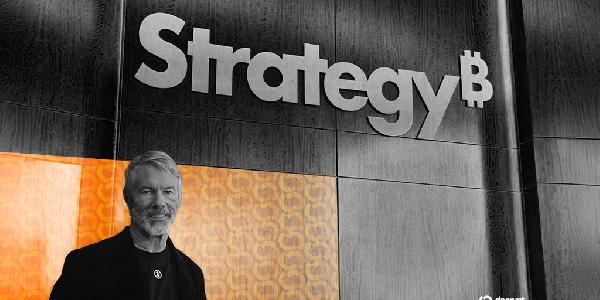Strategy Executive Chairman Michael Saylor has marketed the company‘s Bitcoin-backed preferred stock as a superior alternative to traditional bank accounts for retirees, promoting securities that yield 9.5 compared to typical savings rates of 0.1 to 4.
Saylor described the firm‘s latest preferred offering, STRC, as particularly attractive to risk-averse investors seeking stable income during the company‘s second-quarter earnings call on Thursday.
"This is interesting for retirees. It‘s interesting for a whole class of people," he said, explaining the product‘s appeal to those seeking higher yields without long-term commitments.
The pitch comes as Strategy reported record quarterly profits of $10 billion, mainly driven by Bitcoin‘s price rise from $77,000 in Q1 to over $111,000 in Q2.
The Virginia-based company, formerly known as MicroStrategy, pioneered the corporate Bitcoin treasury strategy and now holds 628,791 BTC worth over $74 billion.
When asked about the responsibility of promoting Bitcoin-backed products to retirees, Peter Chung, head of research at Singapore-based Presto Labs, told Decrypt that "registered investment advisors managing the retirees will make that decision," adding the product is structured in “such a way that it mimics the economics of MMFs."
The company‘s preferred securities are structured as perpetual instruments that never mature, paying monthly dividends backed by Strategy‘s massive Bitcoin holdings.
STRC, the latest offering, is designed as a short-duration, high-yield alternative to money market funds, with six times over-collateralization in Bitcoin.
The security trades on NASDAQ and offers daily liquidity, distinguishing it from traditional preferred stocks that typically trade at much lower volumes.
"If you go down the street and you ask a hundred people, would you like a one-month instrument that actually pays you 500 basis points more than SOFR or a savings account that pays 9.5, they would generally say yes," Saylor said during the call.
Chung explained that Strategy‘s obligations are primarily coupon payments, and the company‘s Bitcoin holdings "are large enough to cover 120 years of these obligations."
He noted that even in severe downturns, "if Bitcoin goes down by 80, it‘s still enough to cover 24 years."
In comparison to traditional retirement products, Chung acknowledged lower predictability but emphasized that "the yields are higher.”
He observed this suggests "a trend of ‘financialization‘ of Bitcoin to appeal to demographics outside crypto-native investors," adding that "as with any investment, the risk is to be borne by investors themselves."
During the earnings call, Saylor stressed that the preferred securities offer "intelligent leverage" on Bitcoin exposure while providing downside protection through senior positioning in the capital structure.
Saylor highlighted supportive regulatory developments, noting that "this administration is going to be very enthusiastic in its support of the entire crypto industry and the Bitcoin ecosystem" following the White House‘s 150-page crypto policy report earlier this week.
Your Email









